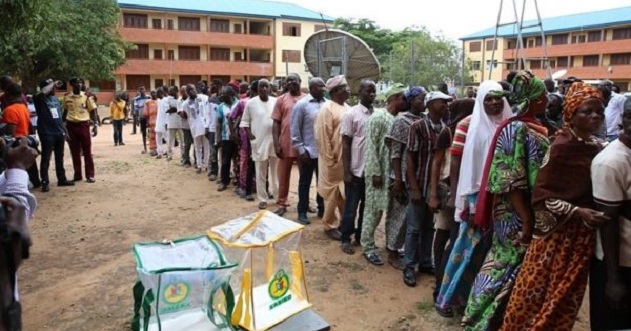Politics
INEC expresses concern over number of political parties

The Independent National Electoral Commission (INEC) has expressed concern at the manner at which number of political parties in the country create a logistic problem during the electoral process.
Recall that no fewer than seventy-six parties contested the February presidential elections alone.
Assessing the situation on Saturday, INEC’s National Commissioner in charge of Kwara, Kogi and Nasarawa states, Malam Mohammed Haruna, said that the large number of the parties gave birth to several logistic problems.
He spoke to reporters in Ilorin on the sidelines of a workshop to review the 2019 general elections.
According to him, 799 litigations ensued from the elections across the country with Imo State leading with 77 petitions, adding that three came from Kwara State, while Jigawa recorded no petition at all.
Haruna said that there were over 800 million pre-election cases across the country that arose from political parties’ primary elections.
Going further, he said “So you can see that with these kinds of problems we had, there is really a need to look at the number of political parties.
Read also: ZAMFARA: 10 political parties condemn move to nullify Matawalle’s governorship election
“We really need to do something about the 91 political parties, not just the quantity which generally speaking the public have begun to complain that 93 political parties are on the high side.”
He also pointed that 76 political parties contested for the Presidential election, adding that this was the source of the serious logistics problem that the commission had.
“We underestimated the kind of logistical problem that implied the size of the ballot papers, result sheets and so on. By the time these materials started arriving, we realised that it was a huge logistical problem.
“We are lucky, we had the Nigerian Air Force to help with the movement of the materials, they have always been helping us,” Haruna said.
The commissioner, however, suggested that the Electoral Act and the Constitution should be reviewed to curb the increasing number of political parties.
According to him, the Constitution and the Electoral Act made it easy for anybody to register a political party once the person has an office in Abuja and its executive officers that reflected the federal character.
Haruna said that the workshop was to review the 2019 general election to see what went wrong, and how to make sure that similar mistakes are not repeated in future elections.
He said the review would help the commission to do better during off-season elections coming up in Bayelsa and Kogi later in the year.
In his remark, the Resident Electoral Commissioner (REC) in Kwara, Malam Garba Attahiru-Madami said the workshop was mainly to review the activities of the last election and proffer solutions to identified lapses.
Madami, who was represented by the Administrative Secretary, Mr Martins Borris Chiroma, advised participants to contribute meaningfully to the sessions.
“We want to receive inputs from you that will help INEC to overcome challenges identified during the last general elections,” he said.
The workshop was attended by Electoral Officers, Assistant Electoral Officers (AEO) in charge of Operations and RAC from the 16 local government areas of the state.
Join the conversation
Support Ripples Nigeria, hold up solutions journalism
Balanced, fearless journalism driven by data comes at huge financial costs.
As a media platform, we hold leadership accountable and will not trade the right to press freedom and free speech for a piece of cake.
If you like what we do, and are ready to uphold solutions journalism, kindly donate to the Ripples Nigeria cause.
Your support would help to ensure that citizens and institutions continue to have free access to credible and reliable information for societal development.
























